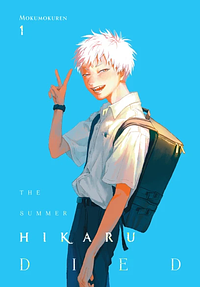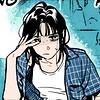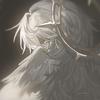You need to sign in or sign up before continuing.
Take a photo of a barcode or cover
dark
emotional
mysterious
sad
tense
medium-paced
dark
emotional
fast-paced
Plot or Character Driven:
Character
Loveable characters:
Yes
dark
emotional
mysterious
reflective
fast-paced
Plot or Character Driven:
A mix
dark
reflective
tense
medium-paced
dark
emotional
mysterious
reflective
tense
medium-paced
Plot or Character Driven:
Character
Strong character development:
Complicated
Loveable characters:
Yes
Diverse cast of characters:
Yes
Flaws of characters a main focus:
Complicated
rereading!
i'll forever love how easily this story draws you in, its queerness (in every sense of the word) and the characters' feelings and internal conflict being the driving force of it all. so excited to keep reading
i'll forever love how easily this story draws you in, its queerness (in every sense of the word) and the characters' feelings and internal conflict being the driving force of it all. so excited to keep reading
mysterious
sad
medium-paced
Plot or Character Driven:
Character
Strong character development:
Complicated
Loveable characters:
Yes
Diverse cast of characters:
No
Flaws of characters a main focus:
Yes
dark
emotional
mysterious
medium-paced
Plot or Character Driven:
A mix
Strong character development:
Complicated
Loveable characters:
Yes
Diverse cast of characters:
Yes
Flaws of characters a main focus:
Complicated
dark
emotional
mysterious
tense
fast-paced
Plot or Character Driven:
A mix
Strong character development:
Complicated
Loveable characters:
Yes
Diverse cast of characters:
No
Flaws of characters a main focus:
Yes
There’s a particular kind of story that doesn’t flinch when you stare into it—one that meets your gaze and holds it, unblinking, until you’re the one who looks away. The Summer Hikaru Died, Vol. 1 is one such story. It lingers in the hush between panels, in silences steeped not in emptiness but in something more unsettling: grief, rot, memory. It does not seek to comfort. Instead, it coils gently—spectrally—around your ribs, the way a half-remembered dream haunts the edges of wakefulness. It worms its way beneath the skin like mold beneath old wallpaper: quiet, creeping, and heartbreakingly intimate.
Let us begin, reluctantly, with the premise—though to call it a “plot” feels almost beside the point. The bones of the narrative are these: in a secluded mountain town, Hikaru—bright, beloved, golden—is dead. And something else, something unspeakably other, has taken his place. Yoshiki, his best friend, recognizes the difference immediately. And yet he stays. And continues to stay. That is the plot. But it is not the story.
Because what Mokumokuren constructs here is not horror in the conventional sense—it is grief, dressed in the garments of familiarity. The terror doesn’t erupt from gore or spectacle, though there are moments when the teeth gleam sharp beneath the mask. No, the horror is quieter, far more insidious. It lives in Yoshiki’s denial, in his repetition of a name he knows no longer belongs to the thing that bears it. It resides in the unbearable ache of watching someone refuse to let go—not because they are fooled, but because they remember.
Visually, The Summer Hikaru Died is a masterclass in tonal control. Mokumokuren’s art oscillates—at times gracefully, at others jarringly—between the ethereal and the grotesque, echoing the way memory can shift without warning from nostalgic to nightmarish. This visual elasticity becomes central to the manga’s atmospheric tension. The paneling is deliberate, often mimicking cinematic techniques: skewed perspectives, disorienting angles, and prolonged sequences that stretch out banal actions until they bleed unease.
Rural stillness is weaponized—the country roads, the shadows of trees that stretch unnaturally, the endless murmur of cicadas. Mokumokuren evokes the heavy, breathless atmosphere of a Japanese summer not merely as backdrop, but as an active, looming presence. There is a profound watchfulness to the world. Every frame feels suspended in a moment just before something breaks, as if the landscape itself is complicit in the unfolding dread. The pacing of the visuals, married with the uncanny restraint of the narrative, produces a world that feels less like it’s being read and more like it’s waiting—for you, for them, for whatever it is that cannot be named but will inevitably arrive.
The relationship at the story’s core—if one can even call it that—between Yoshiki and the entity that wears Hikaru’s face is rendered with an uncanny tenderness that is more disturbing than any overt act of horror. It is a love story warped by trauma, transformed by loss. There’s a deep ache to their proximity: love, perhaps; or the ruins of it; or its impossible echo. It once was, it might have been again—but it no longer is, and crucially, no one dares to name that truth aloud. The emotional tension lies in this refusal, this shared pretense. What binds them is not affection, but a haunting—of memory, of possibility, of the unbearable familiarity of the thing that remains.
If I may diverge, and I will, it bears saying: this isn’t a story about possession. It’s about willing surrender. The creature that wears Hikaru’s face—Not-Hikaru—does not coerce Yoshiki into staying. There is no manipulation, no psychic hijacking. Instead, Yoshiki chooses. And he continues to choose, again and again, in full view of the horror. That conscious act of remaining—of staying, despite knowing—reveals the most disquieting truth of all: that grief is not merely something we endure. It is something we host. That we let monsters in not because they break down the door, but because they resemble someone we once loved.
Do I recommend The Summer Hikaru Died? Without hesitation—but never lightly. Read it if you’re prepared for a narrative that is slow, sad, and serrated. Read it if you prefer your horror quiet, your emotional wounds raw, and your characters aching under the weight of what they cannot name. But do not seek resolution here. This is the beginning of a long fall, and it ends the way a held breath ends—just before the scream.








